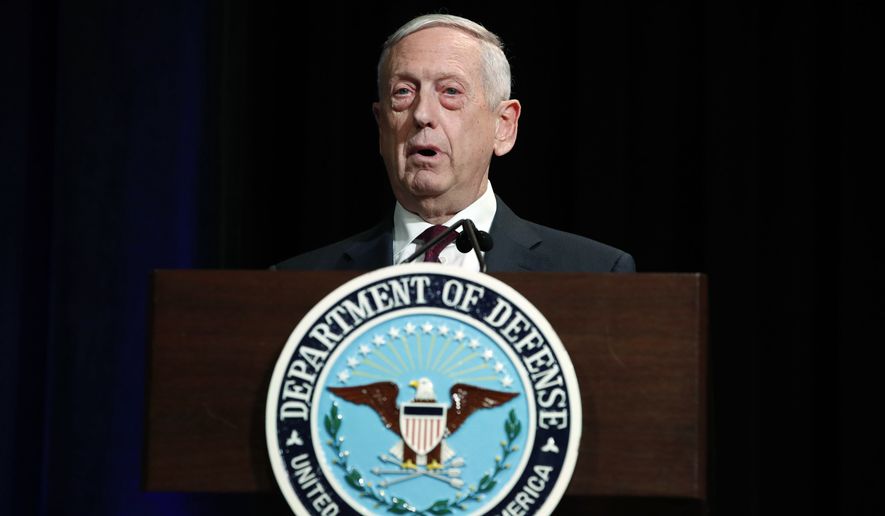BRUSSELS | American and NATO military officials are transforming the U.S. mission in Iraq into a more-multinational campaign amid the promise of new commitments from partner nations to train and advise Iraqi forces to prevent a recurrence of the threat from Islamic State.
But a Pentagon plan to totally transform the Iraqi mission into a longer-term campaign more akin to current U.S. operations in Afghanistan has been shelved for the time being, officials say, even though the increased commitment from NATO for Iraq could be a major step in that direction.
The specific number of NATO troops and the partner nations from which those forces will be drawn from will be outlined at the alliance’s annual summit, scheduled for next month, Secretary General Jens Stoltenberg said during a separate briefing at a gathering of NATO defense ministers here last week.
“We strongly believe that the best weapon we have in the fight against terrorism is to train local forces,” Mr. Stoltenberg said.
“NATO has deployed in big combat operations, and it may happen again that we need to do that. But in the long run, we strongly believe that the much better strategy is to enable local forces to stabilize their own country and fight terrorism themselves,” he added.
For his part, Defense Secretary James N. Mattis said the new NATO training mission in Iraq is part of the “unrelenting” effort to quash the Islamic State’s so-called caliphate and “prevent a resurgence of ISIS” in the Middle East and elsewhere.
“We cannot allow ISIS or any other terrorist group to terrorize the people of this region, again driving thousands of refugees from their homes and into Europe and elsewhere,” Mr. Mattis told reporters shortly after meeting with his counterparts of the Iraq fight.
Mr. Mattis said the new NATO mission would proceed only with the explicit cooperation from Baghdad, as the country continues to deal with the fallout from parliamentary elections in May.
“We will deal with those who come into the new [Iraqi] government as it forms. And we will deal with them as a sovereign nation,” he said.
Pentagon sources had said before the summit that Mr. Mattis intended to present the U.S. plan to expand the Iraqi military training operation — putting it on par with the ambitious mission in Afghanistan. The current counter-Islamic State force in Iraq and Syria consists of about 9,000 troops, some 5,000 of which are American.
But the current uncertainty in Iraq’s security and political situation following an election where the top finishers were a Shiite nationalist cleric and party tied to Iranian-backed militia forces, has prompted the Pentagon to move more slowly with any transition as negotiations over a new government in Baghdad proceed.
The outgoing government of Iraqi Prime Minister Haider al-Abadi — who finished third in the May 12 vote — has supported the notion of a continued U.S. military presence, despite the Islamic State’s ouster from Mosul and other parts of the country.
The top finisher in May’s election, fiery Shiite cleric Muqtada al-Sadr, sparked alarm in Washington and other Western capitals late last month, declaring the U.S. an “invader country,” and insisting that the his newly empowered Sairoon political alliance will “not allow [the U.S.] to interfere at all.”
He also embraced a more conciliatory tone toward Iran in his statement, saying only that “Iran is a neighboring country that fears for its interest and we hope it will not interfere in Iraqi affairs.”
The cleric has a history of calling for the removal of the Americans, reportedly even threatening during the recent parliamentary campaign that such troops could become the target of Shiite paramilitary groups if they stay in Iraq for too long.
Pentagon officials say they are not abandoning plans to put the Iraqi military training operation on the same footing as Afghanistan, but security forces in the country — still rebuilding after the offensive to oust the Islamic State and clear out remaining pockets of the insurgency — are not ready to provide the security required for such a move, officials say.
• Carlo Muñoz can be reached at cmunoz@washingtontimes.com.




Please read our comment policy before commenting.